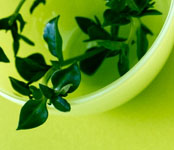|
Stoke Cause
Blood clots and burst blood vessels stop blood flow to your brain. The brain like every other part of your body needs blood to survive. Blood carries essential nutrients and oxygen to the brain. Without a blood supply, brain cells can be damaged or destroyed and won’t be able to do their job. Because the brain controls everything the body does, damage to the brain will affect body functions. For example, if a stroke damages the part of the brain that controls how limbs move, limb movement will be affected. The brain also controls how we think, learn, feel and communicate. A stroke can also affect these mental processes.
Stroke Symptoms
There are 3 easy things to look for to tell if a person is having a stroke:
- A twisted face or drooping on one side of the face.
- Slurred speech.
- Ask the person to stretch out their arms and close their eyes. One side will drift down.

Why does acupuncture help?
Acupuncture therapy for stroke-caused conditions such as paralysis, speech and swallowing problems, and depression is commonly used in the Orient. In China and Japan, an acupuncturist is likely to start therapy as soon as possible after a stroke. Studies show that acupuncture opens blood vessels for better flow and decreases clotting and inflammation. Acupuncture seeks to redress and rebalance this energetic condition through three levels of intervention. Initially acupuncture can be applied at the level of first aid reducing spasms, blood pressure, and assisting resuscitation. Subsequent treatment can clear blockages and work with the individuals’ dominant energetic to improve well being. On a longer term basis acupuncture can be used to help prevent reoccurrence by regulating the underlying imbalances that are the root cause of stroke attack.
Is acupuncture safe?
Acupuncture is a safe therapy, and this is especially true when helping stroke victims. Even discomfort is generally minimal. If one compares the possible positive help to be obtained with the risks associated with acupuncture, our contention is that acupuncture is worthy to attempt for stroke therapy.
How long will the treatment take?
Treatment needs to be frequent. Some proponents suggest treating every day, seven days a week, during the first month or so, with a week break after several weeks. All acknowledge the minimum required is two treatments per week. Twenty to forty treatments per course are standard. A combination of normal acupuncture needling (referred to as dry needling by medics), low frequency electrical stimulation - just enough to produce sensation on the points and in the surrounding muscles, and the newly developed scalp acupuncture is used.
Research Evidence
Many studies involving thousands of patients have been published in China and Japan, and also studies from Scandinavia, Sweden and United States all demonstrated significant help. These studies indicate that patients get well faster, perform better in self-care, and require less nursing and rehabilitation therapy. Improvement in speech, regain of control over bladder and bowel functions, reduction of spasm and increased mobility in the limbs, are the great gains available through acupuncture.
- Acupuncture provides "statistically significant" benefits in physical functioning and recovery when used as an adjunct to conventional stroke rehabilitation measures ---Alexander DN, Cen S, Sullivan KJ, et al. Effects of acupuncture treatment on poststroke motor recovery and physical function: a pilot study. Neurorehabilitation and Neural Repair 2004;18(4):259-267
- The evidence to date suggests that acupuncture has a valuable role to play in helping stoke recovery. ---British Acupuncture Council
- Among those receiving acupuncture significant improvement was observed in walking, balancing and activities of daily living, quality of life, mobility and emotional state. The change in mood produced by the acupuncture stimulation might be the most important aspect of the treatment. -Johansson et al (1993) Can sensory stimulation improve the functional outcome of stroke patients Neurology 1993:43:2189-92
How to reduce the risk of having stroke?
- Do not smoke. Smoking damages your cardiovascular system by constricting your blood vessels and other damages. With damaged blood vessels your heart has to pump faster to get your blood to all areas of the body including the brain.
- Watch your diet. Foods such as fried foods, chips and other foods of little or no nutritional value (typically any food high in fat or salt) can cause hypertension and eventually lead to stroke.
- Watch your weight. Being overweight in itself can set you up for at least three times as many health problems compared to a thin person.
Assisting Treatments
Acupressure/Chinese Medical Massage
Massage significantly reduces the anxiety, pain, blood pressure and heart rate of elderly stroke patients. It will help them to experience a significantly higher quality of life, show an improvement in general hygiene and mobility, and use less medication, in particular for pain and depression.
Herbs
Chinese medicine has equated stroke and heart attack for centuries. To treat stroke, TCM practitioners prescribe herbs that open the blood vessels and promote the flow of Blood. We also recommend acupuncture and massage as well as exercise such as Tai Chi and Qigong.
Cupping
Cupping affects the body’s tissue up to four inches deep. This causes tissue to release toxins, clears blockages, activates the lymphatic system and helps to clear the veins and arteries.
|


